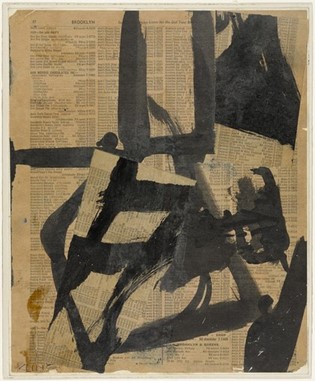 |
Alexander Bello and Trevor Jackson in The Tap Dance Kid. (Photo: Joan Marcus)
|
The return of the Encores! series to City Center over the weekend after two years in hiatus was eagerly anticipated, but the occasion – a revival of the 1983 musical The Tap Dance Kid – turned out to be dispiriting. To start with, the show, which I missed the first time out, isn’t very good. Charles Blackwell’s book (based on a novel by Louise Fitzhugh – of Harriet the Spy fame – called Nobody’s Family Is Going to Change) is a retread of the antique melodramatic plot about the boy who has to fight his stiff-backed father’s bias against show business to follow in his dancer-choreographer uncle’s footsteps and dance his heart out on the stage. Here he’s a ten-year-old Black kid from the Buffalo suburbs named Willie (played by the personable Alexander Bello) whose mother, Ginnie (Adrienne Walker), danced with her kid brother Dipsey (Trevor Jackson) and their gifted father when they were children. Ginnie raised Dipsey in cheap hotels on the road and took care of him when Daddy Bates went on benders. Then she married William (Joshua Henry), an ambitious lawyer who promised her a safe, respectable life. He delivered, but his vision of family life and of what bringing glory to the race is highly restrictive. He’s suiting up his son, who is bored in school but deliriously happy when he’s taking tap lessons from his uncle, for a career in law, while his teenage daughter Emma (Shahadi Wright Joseph), a bright young woman who covets that career for herself, can do nothing to gain his approval. He’s not interested in Emma; she’s only a girl. And he bullies his wife, silencing her objections and making jokes about the troublesome women in this family. When Willie’s bad grades provoke his father into taking away his tap shoes and banning Dipsey from his home, the boy runs away to his uncle, who’s rehearsing a musical downtown that he hopes will be his ticket to Broadway. What it needs to succeed, in case you haven’t guessed, is a talented tap dance kid.

